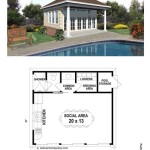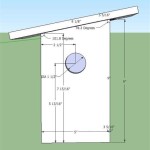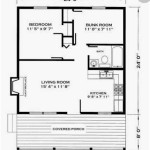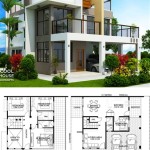Essential Aspects of Floor Plan for House Construction
The floor plan is arguably the most important aspect of house construction as it serves as a blueprint for the entire project, outlining the layout, flow, and functionality of the living spaces. Careful planning of the floor plan is crucial to ensure the home meets the needs and preferences of its occupants while adhering to building codes and regulations.
Multiple factors come into play when creating an effective floor plan. These include:
1. Room Size and Placement
The size and placement of each room should be carefully considered to ensure adequate space for furniture, movement, and activities. Factors to consider include the number of occupants, their lifestyle, and any specific needs or preferences they may have.
2. Traffic Flow
The flow of traffic through the house should be planned to minimize bottlenecks and ensure a smooth transition between spaces. Common areas, such as the living room and kitchen, should be easily accessible and well-connected to other parts of the house.
3. Natural Light and Ventilation
Windows and doors should be strategically placed to maximize natural light and ventilation throughout the house. This creates a more comfortable and inviting living environment while reducing energy costs.
4. Privacy and Noise Control
The floor plan should consider the privacy of different spaces, such as bedrooms and bathrooms. Proper separation and soundproofing can help minimize noise and create a more peaceful living environment.
5. Storage and Utility Areas
Adequate storage space is essential to keep the house organized and clutter-free. Closets, pantries, and utility rooms should be strategically placed to accommodate the storage needs of the occupants.
6. Building Codes and Regulations
Floor plans must comply with local building codes and regulations. These codes govern various aspects of construction, including room sizes, fire safety, accessibility, and energy efficiency. It's essential to consult with local authorities to ensure compliance.
7. Future Expansion and Modifications
When designing the floor plan, it's wise to consider potential future expansion or modifications. This may involve incorporating flexible spaces that can be easily adapted to changing needs over time.
Consulting with an experienced architect or home designer is highly recommended when creating a floor plan for house construction. They can provide valuable insights, ensure adherence to building codes, and help optimize the design to meet the unique requirements of the occupants.

Easy To Build Houses And Floor Plans Houseplans Blog Com

House Plans How To Design Your Home Plan

House Plans How To Design Your Home Plan

Diffe Types Of Building Plans The Constructor

Floor Plan Apartment Blueprint With Construction Elements House Project Vector Ilration Stock Vrgrafik Adobe

House Design Plan Ch493 35 App Plans Construction

2nd Floor Plan House Construction Plans Mansion

House Plans How To Design Your Home Plan

Small House Design 2024001 Pinoy Eplans Floor Plans

Est House Plans To Build Simple With Style Blog Eplans Com
Related Posts








